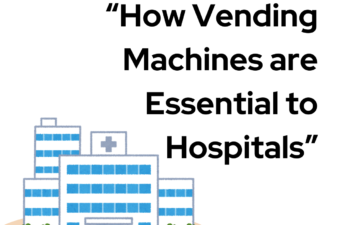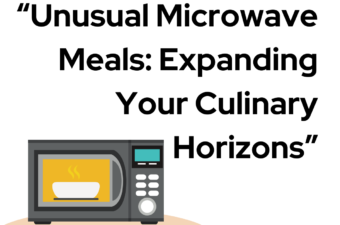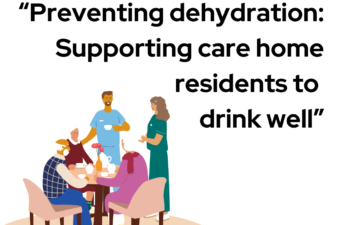
The provision of 24/7 hot food in hospitals is a critical aspect of patient care that the UK government has increasingly focused on. Ensuring that patients have access to nutritious, hot meals around the clock can significantly impact their recovery, overall health, and hospital experience. This blog post explores the government’s plan for 24/7 hot food in hospitals, its potential benefits, challenges, and implementation strategies.
The Need for 24/7 Hot Food in Hospitals
Hospital patients come from diverse backgrounds and have varying medical needs. Access to hot, nutritious food at any time of day or night is essential for several reasons:
- Nutritional Needs: Proper nutrition is vital for recovery. Patients need meals that provide the necessary nutrients to support healing and maintain their health.
- Medication Schedules: Many patients are on medication schedules that require them to eat at specific times, which may not align with traditional meal service hours.
- Irregular Eating Patterns: Patients often have irregular eating patterns due to medical treatments, procedures, and the nature of their illnesses.
- Comfort and Morale: Hot meals can provide comfort and improve patient morale, which is important for mental health and overall well-being.
The Government’s Initiative
The UK government’s plan to provide 24/7 hot food in hospitals aims to address these needs comprehensively. This initiative is part of a broader strategy to enhance patient care and support recovery. Key components of the plan include:
- Infrastructure Upgrades: Upgrading hospital kitchens and dining facilities to ensure they can support 24/7 meal service. This may involve installing new equipment, expanding storage capabilities, and redesigning kitchen layouts.
- Staffing Solutions: Ensuring that there is sufficient staff to prepare and serve hot meals at all hours. This includes hiring additional kitchen staff and providing training to ensure high standards of food safety and nutrition.
- Menu Diversity: Developing diverse menus that cater to the dietary needs and preferences of patients. This includes offering options for various medical conditions, cultural preferences, and dietary restrictions.
- Technology Integration: Leveraging technology to streamline meal ordering and delivery processes. This includes using digital platforms for meal ordering and tracking, as well as implementing automated kitchen equipment to improve efficiency.
Benefits of 24/7 Hot Food in Hospitals
The implementation of 24/7 hot food services in hospitals offers numerous benefits:
- Improved Patient Outcomes: Proper nutrition is linked to better health outcomes. Providing patients with hot, nutritious meals around the clock can support recovery and reduce the risk of complications.
- Enhanced Patient Satisfaction: Access to hot meals at any time can significantly enhance patient satisfaction and overall hospital experience. Satisfied patients are more likely to comply with treatment plans and have a positive outlook on their recovery.
- Reduced Food Waste: By offering meals on demand, hospitals can reduce food waste. Patients are more likely to eat meals that are freshly prepared when they want them, rather than pre-prepared meals that may not suit their preferences.
- Support for Healthcare Staff: 24/7 food services can also benefit hospital staff, who often work long and irregular hours. Access to hot meals can improve staff morale and well-being, leading to better patient care.
Challenges and Solutions
Implementing 24/7 hot food services in hospitals comes with several challenges, but there are effective solutions to address them:
- Funding and Budget Constraints: Upgrading kitchen facilities and hiring additional staff require significant investment. The government can explore funding options such as public-private partnerships, grants, and budget reallocations to support these upgrades.
- Logistical Issues: Managing meal delivery at all hours can be logistically challenging. Hospitals can use technology to streamline ordering and delivery processes, ensuring that meals are delivered promptly and efficiently.
- Staffing Shortages: Finding and retaining skilled kitchen staff can be difficult, especially for night shifts. Offering competitive wages, benefits, and flexible working hours can help attract and retain staff.
- Menu Planning: Developing diverse menus that cater to all patients’ needs requires careful planning and collaboration with dietitians and nutritionists. Regularly updating menus based on patient feedback can ensure that offerings remain relevant and appealing.
Case Studies
- NHS Trusts Leading the Way: Several NHS Trusts have already begun implementing 24/7 food services with positive results. For example, one Trust reported improved patient satisfaction scores and reduced food waste after introducing a round-the-clock meal service.
- International Examples: Hospitals in countries such as Australia and the United States have successfully implemented 24/7 food services. These hospitals have reported better patient outcomes and increased staff satisfaction, providing valuable insights for UK hospitals.
The Role of Technology
Technology plays a crucial role in the successful implementation of 24/7 hot food services in hospitals. Some key technological solutions include:
- Digital Meal Ordering Systems: These systems allow patients to order meals at any time using tablets or smartphones. Orders are transmitted directly to the kitchen, reducing wait times and ensuring accuracy.
- Automated Kitchen Equipment: Modern kitchen equipment, such as subzero vending machines, can streamline food preparation and ensure consistency in meal quality.
- Food Delivery Robots: Some hospitals are experimenting with robotic delivery systems to transport meals from the kitchen to patient rooms. These robots can navigate hospital corridors and deliver meals efficiently, reducing the burden on staff.
Future Directions
As the government continues to roll out its plan for 24/7 hot food in hospitals, several future directions can be considered:
- Continuous Improvement: Regularly reviewing and improving food services based on patient and staff feedback will ensure that the system remains responsive and effective.
- Collaboration with Food Service Providers: Partnering with external food service providers can bring in additional expertise and resources, helping hospitals to manage the logistical and operational challenges of 24/7 food services.
- Focus on Sustainability: Ensuring that 24/7 food services are environmentally sustainable is crucial. Hospitals can adopt practices such as sourcing local ingredients, reducing food waste, and using eco-friendly packaging.
The UK government’s plan for 24/7 hot food in hospitals represents a significant step towards improving patient care and overall hospital experience. By addressing the nutritional needs of patients and ensuring access to hot meals at any time, hospitals can enhance recovery, satisfaction, and well-being. While there are challenges to implementing this initiative, effective solutions and technological innovations can help overcome these obstacles. As the plan unfolds, continuous improvement and a focus on sustainability will be key to its success, ultimately transforming the standard of care in UK hospitals.




